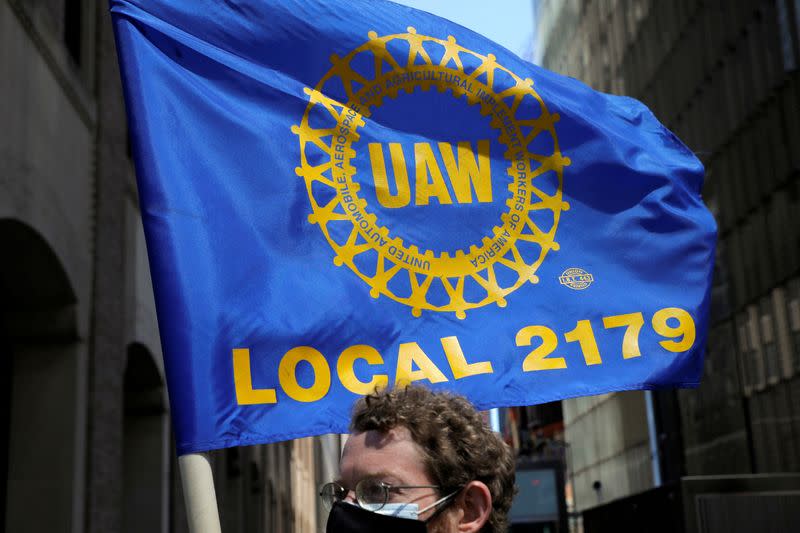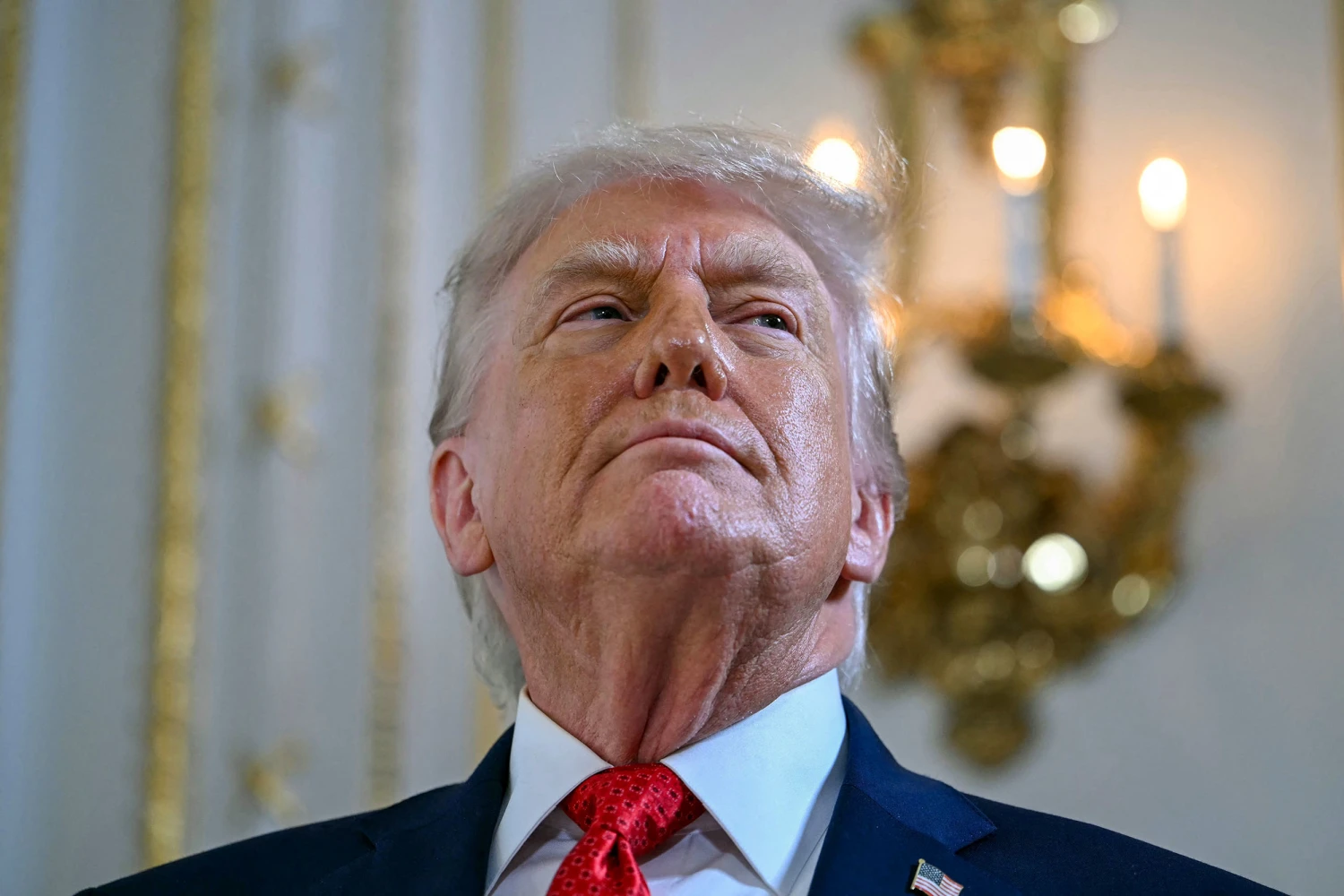DETROIT (Reuters) -The United Auto Workers (UAW) union said on Thursday that workers would walk off the job at three Detroit Three factories at midnight, barring a last-minute agreement, setting up the most ambitious U.S. industrial labor action in decades.
UAW President Shawn Fain laid out plans for the unprecedented, simultaneous walkouts at General Motors, Ford and Chrysler parent Stellantis’ U.S. operations in a Facebook Live address less than two hours before the expiration of the old contract.
The strikes involving a combined 12,700 workers will take place at Ford’s Bronco assembly plant in Wayne, Michigan, GM’s mid-sized pickup truck assembly plant in Wentzville, Missouri and Stellantis’ Jeep assembly plant in Toledo, Ohio. They are critical to the production of some of the Detroit Three’s most profitable vehicles.
“For the first time in our history we will strike all three of the Big Three,” Fain said.
He said he would join the picket line at the Wayne plant when the action began at midnight and did not rule out broadening the strikes beyond the initial three targets.
“If we need to go all out, we will.”
Ford said in a statement the UAW’s latest proposals would double its U.S. labor costs. A walkout could mean that UAW profit-sharing checks for this year will be “decimated,” the company said. GM and Stellantis declined to comment ahead of the midnight strike deadline.
A long UAW strike threatens to spread economic turmoil as suppliers and other industries that depend on automakers and their workers see demand dry up. The standoff has become a political issue with President Joe Biden, facing re-election next year, prominently calling for a deal.
The Detroit Three have held simultaneous talks with the union, which represents almost 150,000 workers. Union leaders this week described the sides as far apart and have signaled for months that they would not hesitate to shut down Motor City. The union said it wants a 40% raise and companies have offered up to 20%, without key benefits demanded by the union.
The UAW has a strike fund of $825 million.
The strike would not affect the non-union automakers in the United States, including Tesla, Toyota, Honda and Mercedes. Those non-union factories, plus imported vehicles, account for more than half of the vehicles sold in the U.S. market. But the Detroit automakers build some of the U.S. market’s best-selling vehicles, such as the Ford F-150 and Chevrolet Silverado pickup trucks and Jeep SUVs.
The U.S. auto sector, including parts manufacturers, employs almost 1 million people, according to the U.S. Bureau of Labor Statistics.
UAW President Fain has taken an unorthodox approach to the negotiations, bargaining with all three Detroit automakers simultaneously. Past UAW leaders chose one company to set a contract pattern for the other two. Fain has played the companies against each other, seeking to drive up their offers.
In the past week, executives of all three have said the UAW’s demands threaten the long-term competitiveness of their businesses.
“The future of our industry is at stake. Let’s do everything we can to avert a disastrous outcome,” Ford CEO Jim Farley said on Thursday.
The UAW’s Fain has said Ford could have funded better pay and benefits for workers if it curtailed stock buybacks and dividends to shareholders. Ford reported returning $2.5 billion to investors in 2022.
A full strike would hit earnings by about $400 million to $500 million at each affected automaker per week of lost production, Deutsche Bank has estimated. Some of those losses could be recouped by boosting production schedules after a strike, but that possibility fades as a strike extends to weeks or months.




